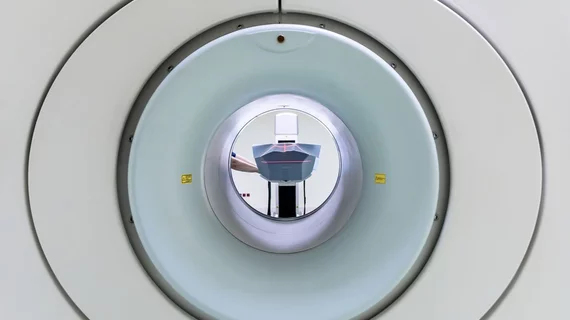Medtronic, Viz.ai partner to improve LVO stroke detection
Medtronic and Viz.ai, an AI-driven tech company, have joined forces to promote the adoption of imaging software that could drastically cut the time it takes physicians to identify suspected large vessel occlusion (LVO).
The software, developed by Viz.ai, connects to hospital CT scanners to alert stroke specialists “within minutes” if it spots an LVO stroke. The software immediately sends the relevant radiological images to specialists’ smartphones, where the attending physician can double-check its results and move forward with a diagnosis.
A Viz.ai study in two centers found that in 95.5% of true positive cases of LVO, its technology alerted the stroke specialist earlier than the current standard of care, saving an average of 52 minutes per case. It’s estimated that someone in the U.S. has an LVO every two minutes, but just 15% of those patients receive a potentially lifesaving mechanical thrombectomy.
“Viz.ai allows clinicians to receive an alert for suspected large vessel occlusions and the corresponding visual data,” Elad Levy, chairman in the department of neurosurgery at the University at Buffalo and medical director of neuroendovascular services at Gates Vascular Institute, said in a statement. Levy doesn’t have any financial ties to the company. “The combination of AI-powered alerts, mobile image viewing and HIPAA-compliant communication facilitates synchronization of stroke care with great potential to impactfully reduce door-to-needle time and help an increased number of patients.”
Since it’s a major player in the CV therapy space, Viz.ai co-founder and CEO Chris Mansi, MBBS, called Medtronic an “ideal partner” to help launch his company’s latest software. Medtronic currently offers the Solitaire Platinum revascularization device, a stent that retrieves clots from occluded blood vessels in patients experiencing acute ischemic stroke as the result of an LVO, and through its newest agreement with Viz.ai it will distribute the company’s existing LVO detection and triage software services as well as the new technology.
“We are excited about this partnership because Viz.ai’s technology has the potential to significantly reduce the time it takes for patients suspected of LVO stroke to receive the care they need,” Stacey Pugh, VP and general manager of Medtronic’s Neurovascularbusiness, said in the statement. “Viz.ai’s software coupled with our network is going to increase access to needed therapies.”

